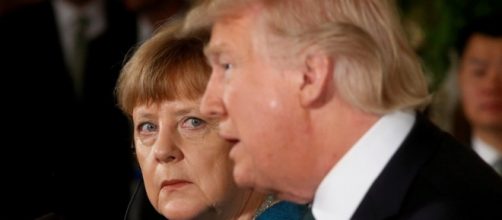The leaders of the world's leading economies are set for a tough debate with US President Donald Trump on the issues of climate change, North Korea and trade on Friday at the G20 20th summit that started in Hamburg, Germany against the threat of violent protests.
The meeting in Germany's port city of Hamburg arises from the great changes in the global geopolitical landscape when Trump's "America First" doctrine emphasizes Europe and China closer to each other.
Trump and Putin's first-ever meeting
US President Donald Trump is expected to meet Russia's President Vladimir Putin for the first time on Friday, a scene that will be closely be monitored amid the allegation by US intelligence agencies that Moscow has influenced US presidential elections to sway Trump's victory.
The summit also involves Trump and China President Xi Jinping when Washington mounts intense pressure in Beijing to stretch on North Korea after testing an intercontinental ballistic missile and with the US threatening China with drastic trade measures.
The host of the great ego and seemingly tough conflicts, German Chancellor Angela Merkel, is faced with the scary task of leading the leaders towards the unity of trade, migration and climate change - all the issues that have become more controversial since Trump came to the White House about six months ago.
Trump's bilateral relations with Putin took place only 15 minutes after the beginning of a climate debate, which was a timetable that could hinder the agreement.
A tough debate for G20 leaders
Making reference to the climate agreement Trump has pledged to exit, Greenpeace's Jennifer Morgan said that Angela Merkel, who hosts the G20, should not offer ambition for unity, and that there is a need for G19 to engage in climate action that demonstrates the intention to implement and even exceed what 195 nations endorsed in Paris.
Merkel met Trump for about an hour at a Hamburg Hotel on Thursday night trying to overcome the differences that the ambassadors of both nations have not been able to resolve in weeks of intense debate, including last-minute travel in Washington, by German Chancellor's top economic adviser.
Both leaders rushed their hands and smiled at the cameras, did not show any tensions in their first two meetings in Washington in March, and Trump's first tour of Europe in May. After this, usually cautious Merkel said that the US was no more a reliable partner and urged Europe to take its destiny into its own hands.


